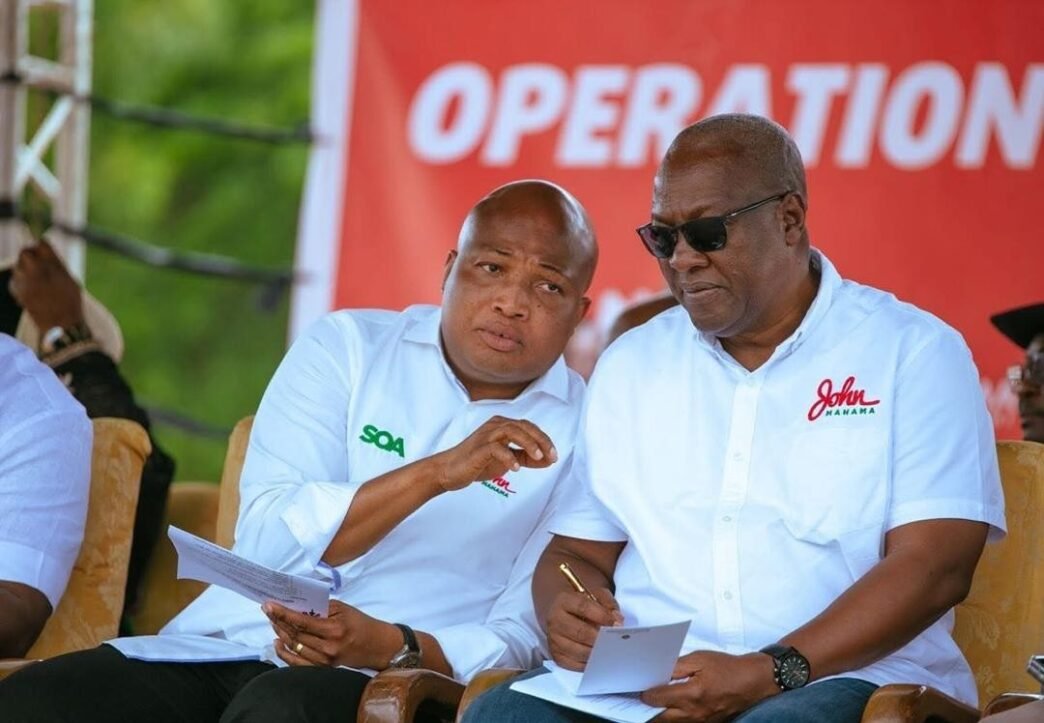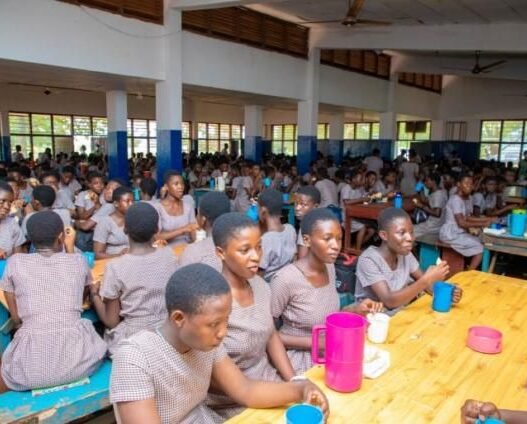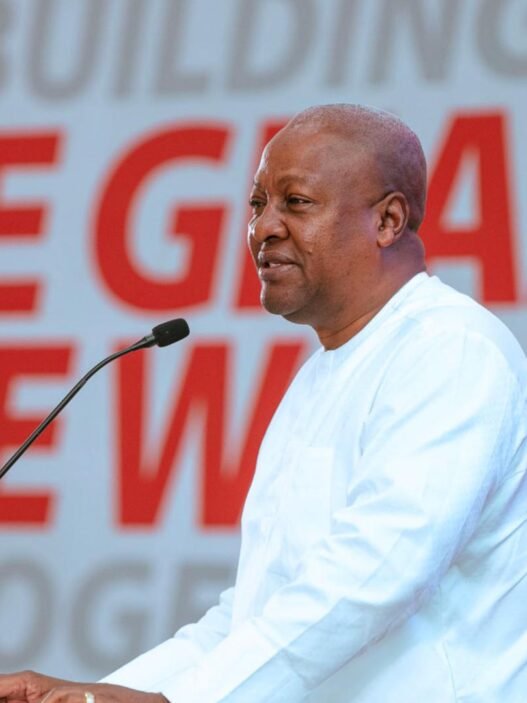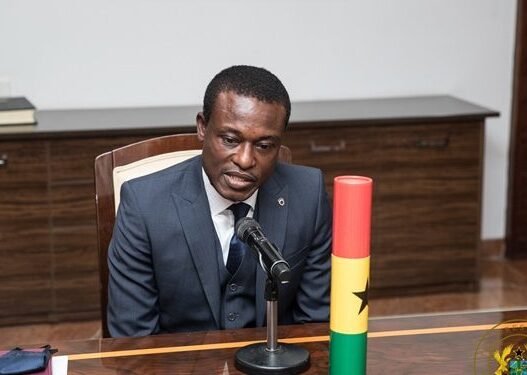The presidency of Nana Akufo-Addo has seen an array of financial scandals that have raised concerns about governance, accountability, and transparency in Ghana. From inflated contracts to outright corruption, these cases have come to the forefront, putting a strain on public trust. Below is an exhaustive look at some of the most significant financial scandals under the Akufo-Addo administration, which have collectively cost the country billions.
Breakdown of Scandals by Cost and Summary
1. National Cathedral Sinkhole – US$58 Million
One of the most talked-about scandals is the controversy surrounding the construction of the National Cathedral. Initially, the project was touted as a religious monument, but it quickly became embroiled in allegations of mismanagement and misuse of public funds. The infamous sinkhole, which formed during construction, raised serious questions about the handling of taxpayer money and the transparency of the project.
2. Ambulance Scandal – US$108 Million
In 2020, Ghana received a fleet of ambulances under the “One Constituency, One Ambulance” initiative. However, it was revealed that the ambulances were overpriced, and there were discrepancies in the way they were distributed. The total cost of the ambulances amounted to US$108 million, but many of the vehicles were found to be non-functional and unused.
3. Sputnik V Vaccine Scandal – US$2.8 Million
The government’s purchase of Sputnik V vaccines during the height of the COVID-19 pandemic also became a contentious issue. Allegations of overpricing and procurement irregularities surfaced after it was revealed that the vaccines were purchased at a significantly higher price than their market value, leading to an estimated overpayment of US$2.8 million.
4. Frontiers COVID-19 Testing Scandal – US$130 Million
Frontiers Health Services, a private company, was awarded the contract to conduct COVID-19 testing at Ghana’s international airports. However, it was discovered that the company charged exorbitant fees for tests that were often not conducted in a timely or efficient manner. The total revenue generated by the company from this arrangement was estimated at US$130 million, and many questioned the transparency of the entire process.
5. Bank of Ghana Headquarters Scandal – US$222.7 Million
The Bank of Ghana’s new headquarters construction project has been a subject of intense scrutiny. With a budget that ballooned to US$222.7 million, the project raised eyebrows due to its excessive costs and questions about the tendering process. Critics argue that this massive spending, during a time of economic hardship, was a clear misuse of state resources.
6. Pwalugu Dam Project – US$11.9 Million
The Pwalugu Multipurpose Dam, which is intended to provide irrigation and power to northern Ghana, has also been plagued by issues of mismanagement. The initial cost of the project was estimated at US$11.9 million, but there were concerns about inflated costs and delays that led to questions about the efficiency and transparency of the process.
7. All Africa Games – US$48 Million
Ghana’s preparation for the 2023 All Africa Games raised eyebrows after it was revealed that an estimated US$48 million was allocated for the event. However, there were widespread reports of corruption and financial mismanagement that undermined the efforts and led to a huge waste of public funds.
8. All Africa Games Feeding & Accreditation – US$29.5 Million
Additionally, the feeding and accreditation process for the games was flagged for gross mismanagement. The total estimated cost for this alone was US$29.5 million, further compounding the financial missteps associated with the event.
9. SML Scam – US$3 Billion
The SML scam involved several companies and individuals engaged in fraudulent schemes that cost the state a staggering US$3 billion. The case remains under investigation, with the exact details of how the funds were misappropriated still to be fully revealed.
10. Luxury Jet Travels – US$6.8 Million
A significant portion of Ghana’s public funds was also spent on luxury travel by government officials, including President Akufo-Addo. Reports surfaced that the President, along with his entourage, had spent US$6.8 million on private jet travel, raising concerns about the lavish use of state resources during a time of national financial strain.
11. Banking Sector Clean-Up – US$1.7 Billion
In 2017, the government initiated a banking sector clean-up to address the growing instability of the country’s financial institutions. However, the process ended up costing taxpayers a whopping US$1.7 billion, with critics arguing that the clean-up was mishandled and left many Ghanaians questioning the effectiveness of the process.
12. Cathedral Executives Payment – US$150,000
In an unexpected twist, it was revealed that key executives overseeing the National Cathedral project were paid US$150,000, leading many to question the rationale behind such lavish payments in the midst of a financial crisis.
13. COVID Expenditure – US$1.45 Billion
As part of the government’s efforts to mitigate the impact of the COVID-19 pandemic, over US$1.45 billion was allocated for various relief measures, including social interventions and health-related expenditures. However, concerns about the lack of transparency in the allocation and distribution of these funds remain unresolved.
14. Resource Access Limited Contract – US$17 Million
Resource Access Limited, a private firm, was awarded a US$17 million contract for the provision of services to the government. There were significant concerns about the company’s qualifications, leading to allegations that the deal was a result of cronyism rather than a fair bidding process.
15. Stadia Renovation – US$5.8 Million
The renovation of sports stadiums across the country was another controversial project. Despite the allocation of US$5.8 million, there were issues with substandard work and cost overruns, which led to public outcry about the misuse of public funds.
16. BoG Illegal Money Printing – US$5.4 Billion
The Bank of Ghana’s decision to print money without due process in an effort to address the country’s fiscal challenges has led to an estimated cost of US$5.4 billion. This breach of regulations sparked widespread criticism, with many fearing its long-term negative impact on Ghana’s economy.
17. Westblue Scandal – US$6.4 Million
Westblue Consulting, a company contracted to provide customs and trade facilitation services, has been embroiled in a scandal regarding the mismanagement of funds totaling US$6.4 million. The company faced allegations of inflated fees and overbilling, which further compounded the country’s financial woes.
18. Lamens Investments Fine – US$3,400
Lamens Investments was fined US$3,400 for financial mismanagement and fraudulent activities. While this amount is comparatively smaller than other scandals, it still contributes to the overall picture of widespread corruption within the administration.
19. Health Sector Digitalization – US$176 Million
The digitalization of the health sector, a key project aimed at modernizing Ghana’s healthcare system, was budgeted at US$176 million. However, concerns arose regarding the procurement process, with accusations that funds were being misused and allocated to inappropriate projects.
20. Agyapa Pay Off – US$12 Million
Agyapa Royalties, a controversial deal in which the government planned to sell Ghana’s mineral royalties to a private company, led to an initial US$12 million payout to the executives involved. Critics argued that the deal was unfair and amounted to a massive loss for the country.
21. PDS Scandal – US$190 Million
The Power Distribution Services (PDS) scandal involved the misappropriation of US$190 million in the management of Ghana’s electricity distribution system. This controversy raised serious questions about the government’s oversight of public-private partnerships.
22. Pullman Hotel Tax Waiver – US$24 Million
A tax waiver of US$24 million was granted to Pullman Hotel, a move that many saw as preferential treatment and corporate welfare for a foreign investor. This waiver came under fire for being granted without proper consultation or public benefit.
23. Skytrain Project – US$2 Million
The Skytrain project, a proposed urban transport initiative, received an initial investment of US$2 million. However, it faced significant setbacks, and many questioned whether the funds were effectively spent, considering the lack of visible progress.
24. Visa Processing Scandal – US$38.2 Million
A scandal involving the overpricing of visa processing fees led to an estimated loss of US$38.2 million. The scheme saw Ghanaian citizens being charged exorbitant fees for visa services that were not rendered in a timely or efficient manner.
25. Covid-19 Smart Workplace Project – US$36 Million
The government’s Smart Workplace project, aimed at digitizing workplace environments during the COVID-19 pandemic, saw a significant expenditure of US$36 million. However, there were numerous reports of inefficiencies and a lack of clear deliverables.
26. Blackstars AFCON Budget – US$8.5 Million
The Blackstars’ budget for the 2021 Africa Cup of Nations (AFCON) tournament was reported to be US$8.5 million. Critics argued that this amount was excessive, especially given the underperformance of the national team during the competition.
27. Single Sourced DRIP Deal – US$178.7 Million
The US$178.7 million DRIP deal, a single-sourced agreement, has been the subject of controversy. Critics have questioned why such a large contract was awarded without competitive bidding, further fueling concerns about governance and transparency.
28. Boankra Inland Port – US$33.3 Million
The Boankra Inland Port project, meant to ease congestion at the country’s ports, was allocated US$33.3 million. However, the project has faced significant delays, cost overruns, and allegations of mismanagement.
29. National Service Payroll Scam – US$4.5 Billion
One of the most alarming scandals involved the National Service Scheme, where it was revealed that over US$4.5 billion was misappropriated through ghost names and inflated payrolls.
30. Ascend Digital Solutions Deal – US$48 Million
Ascend Digital Solutions, a company tasked with providing digital solutions for government projects, was awarded a contract worth US$48 million. Allegations surfaced that the contract was inflated, and questions were raised about the company’s qualifications and bidding process.
31. Bulgarian Embassy Demolition – GHS5.3 Million
The demolition of the Bulgarian embassy, which cost GHS5.3 million, was another controversial expenditure. There was significant public outrage about the use of public funds for such an unnecessary and avoidable project.
32. Bryan Acheampong SSNIT Hotels Scandal
Bryan Acheampong, a government official, was implicated in a scandal involving the SSNIT pension fund’s investment in Labadi Beach Hotel and Blay Brothers businesses.
33. Akufo-Addo Daughter’s Nsuomnam Land Grab
Land grab schemes involving the president’s family, including one related to his daughter’s acquisition of Nsuomnam land, have raised significant concerns about nepotism and corruption.
34. Akufo-Addo Niece’s Lote Land Grab
Similarly, Akufo-Addo’s niece was involved in a controversial land grab of the Lote land, adding to the growing list of land-related scandals in the administration.
35. Heaven Builders Land Grab
Heaven Builders, a private construction company, was accused of unlawfully acquiring state land, sparking public outrage over the government’s failure to protect public property.
36. Lomotey/Adotey Family Land Grab
The Lomotey/Adotey family was involved in an illegal land grab, a situation that drew attention to the misuse of public lands for personal gain.
37. Bawumia Aide’s Land Grab
Aiding in land grabs was another scandal involving a close associate of Vice President Mahamudu Bawumia, which further entrenched the perception of corruption within the administration.
Total Estimated Cost: US$18,441,866,237
The sheer volume of financial scandals and the amount of money lost or mismanaged is staggering, with a cumulative total of US$18.4 billion. As the nation grapples with its growing debt and financial crises, these scandals have called into question the integrity of leadership, the effectiveness of state institutions, and the future prospects for Ghana’s economy.
Why ORAL?
In light of these widespread financial irregularities, Operation-Recover-All-Loot (ORAL) is set to be a cornerstone of President-elect John Dramani Mahama’s anti-corruption agenda. Mahama has committed to making corruption costly by not only prosecuting perpetrators but also recovering the embezzled state funds for national development. His administration will introduce a specialized task force to focus on investigating suspected corruption cases from the previous administration, with a goal of recovering stolen state assets and prosecuting offenders to serve as a deterrent for future corrupt practices.
The ORAL team’s mandate includes preparatory groundwork, evidence gathering, and transitional arrangements to protect whistleblowers and ensure justice. Ghana’s corruption perception has worsened under the current administration, with the Corruption Perception Index dropping from 48 points in 2014 to 40 in 2023. This has been compounded by findings such as GH¢8.8 billion worth of discrepancies identified in the Auditor-General’s 2023 report. With ORAL, Mahama’s government aims to reverse this trend, putting Ghana on a path toward greater transparency, accountability, and development.
The question remains: How long can Ghana’s government continue to operate with such widespread corruption before the consequences become too severe to ignore?
Download Operation Recover All Loot (ORAL) List of Scandals:





















